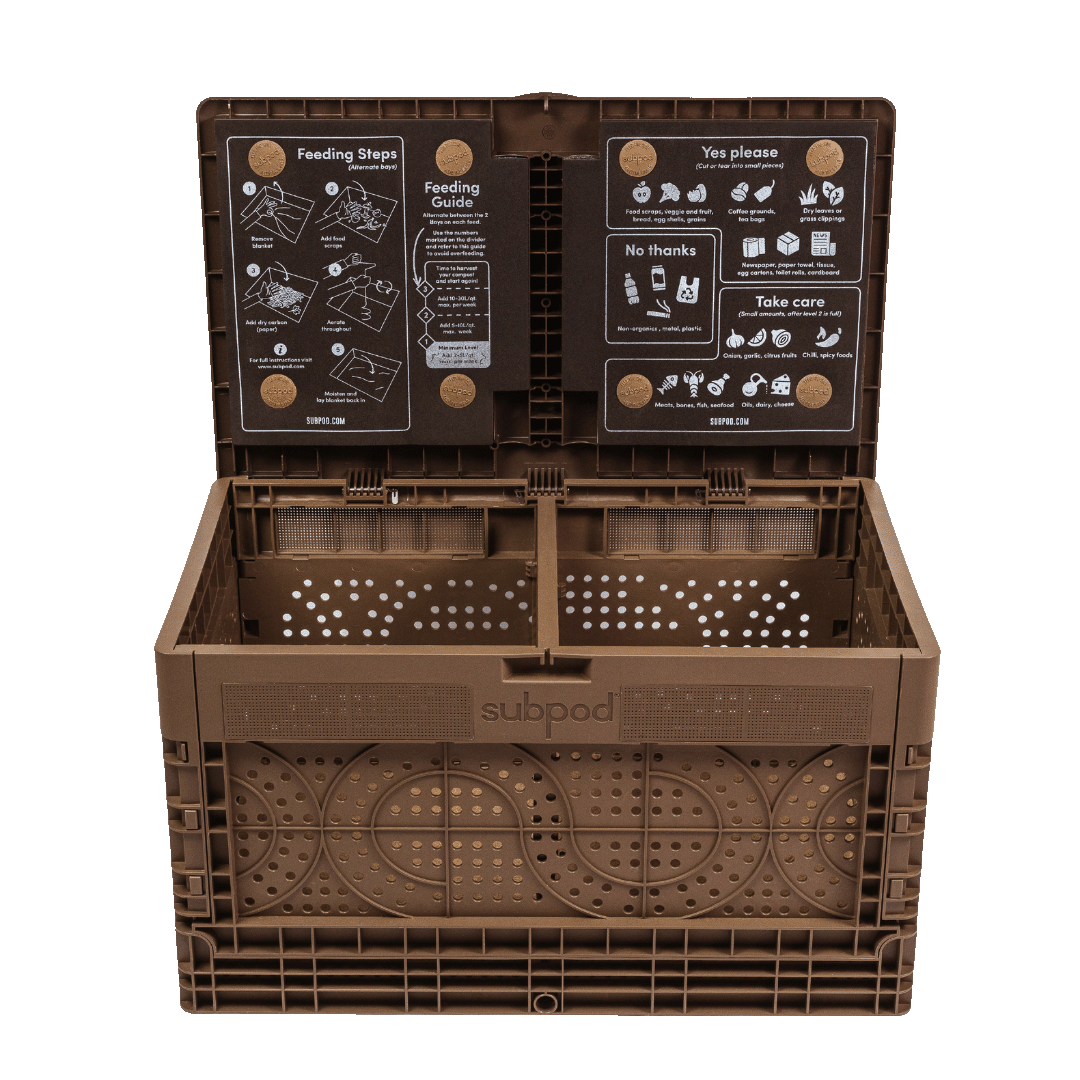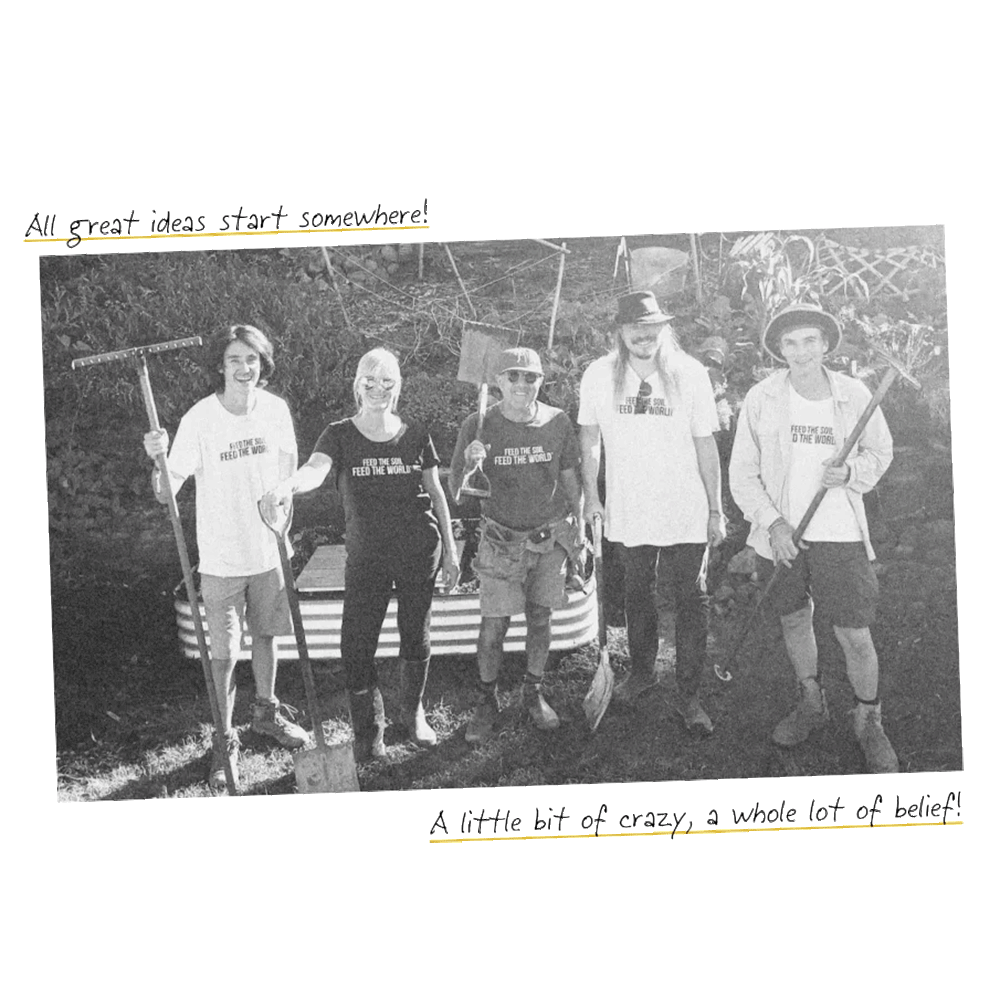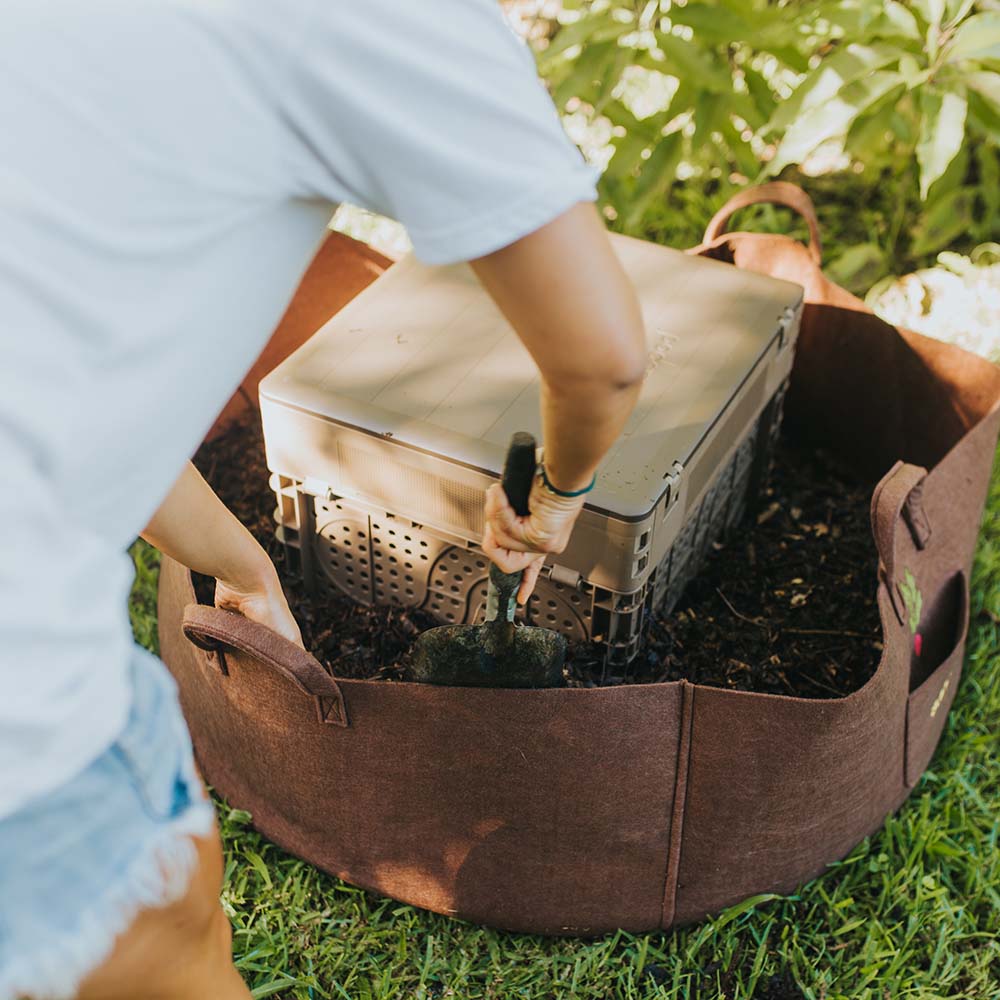In this article:
Keeping your food waste out of landfill is one of the biggest benefits of home composting. As we know though, not all food waste is created equal when it comes to your compost bin, and care is required with what you add and the quantities and ratios you add it in.
A question that gets asked a lot by both beginners and experienced compostors, is “can you put meat in compost?” Meat is organic matter, surely it can be broken down and turned into a nutrient-rich organic fertiliser?
It’s a bit of a divisive topic, with a lot of information out there on whether you can compost meat or not. Plenty of people have differing opinions, so today we’re going to do a deep dig into this meaty topic and give you the facts!
The overwhelming majority of the articles you read on the internet will tell you to stay away from composting meat. That’s the easy path to take, because it is a little bit trickier than standard composting of food waste. But we’re here to tell you can actually compost meat, you just need the right equipment and techniques to do it! It’s something that more experienced composters will try, so don’t dive into coposting meat if you’re a beginner.
To fully appreciate how meat can be composted, it’s important you understand the difference between traditional composting and underground composting.

Traditional VS Underground Composting
Traditional composting is a means of breaking down your organic waste in a large container or pile in your garden. It’s basically nature's way of decomposing waste that has been harnessed and applied to your backyard!
In its most basic form, traditional composting is an open pile of organic waste in your garden, to which you add a mix of ‘green’ and ‘brown’ organic materials (more on that below!). There are composting bins or ‘tumblers’ out there that also serve the same purpose.
When people say that you can’t compost meat, what they’re really saying is you can’t compost meat in the traditional method. It’s easy to see why - nobody wants meat waste sitting in their backyard, creating nasty outdoors and attracting pests.
Underground composting is when your household organic waste is buried beneath the soil, where worms and microbes work to break it down. A Subpod is an example of an underground composting system, being a worm farm that sits semi-submerged in your garden.
With underground composting, you can compost meat, although there are still a few things you should bear in mind. If you’re a beginner, you might want to spend time understanding the basics before you move onto composting meat waste.
Is Meat a ‘Green’ or ‘Brown’ Compost Material?
When you start out composting, you’ll quickly learn that your organic household waste is divided into ‘green’ and ‘brown’ materials. Green materials are rich in nitrogen and generally have higher moisture content. They include things like the majority of your kitchen waste, fresh grass clippings, recently pulled weeds and coffee grounds.
Brown materials are usually drier and brown in colour, and are distinguished by their high carbon content. Examples are things like paper, cardboard, dried leaves, sawdust and straw. Browns help with the aeration and water retention of your compost pile, giving it structure and boosting the carbon levels.
For successful and efficient composting, you need both of these to be present in your bin in a balanced ratio. For most people, this is two to three parts brown to one part green, although you may adjust these according to the needs of your bin. For example, if your compost is wet, this can hinder the process. Adding brown materials will help dry it out and aerate it.
Now a lot of cooked meat might be brown in colour, but because of its high nitrogen content it falls firmly in the green camp. You don’t want to put too much of it into your compost bin without adding adequate brown material to offset the high moisture levels and help provide space for your worms and microbes to work!

Should I Compost Raw or Cooked Meat?
Composting raw meat is a big no-no in any kind of composting setup. Raw meat can still have a number of bacteria in it which could be harmful to humans. The warm, moist environment of a compost bin is a nicely suited ecosystem for this bacteria to survive and thrive. It’ll spread through your compost, and it’s then not advisable to use that compost on plants that will be eaten by humans.
Listeria, salmonella and E-Coli are all examples of bacteria that could contaminate raw meat. You don't want to expose you or your family to the risks posed by them, so we’d suggest not placing raw meat inside your compost bin. It also gets really smelly, so will attract rodents and flies!
Meat that has been cooked properly is less likely to cause these problems, because the cooking process should have removed the bacteria.
What Happens if you Compost Meat the Wrong Way?
Meat is an organic material, so we know it has to decompose. But if you go about composting it in the wrong way, you’re going to attract problems. Here are a few of them:
The Smell
Yup, decomposing meat smells. If you toss your meat scraps onto the top of an open-air traditional composting pile and leave them to turn into compost, you’re in for a stinky surprise. A smelly compost bin or pile won’t win you any favours with your neighbours!
Uninvited Rodent and Mammals
Those odours that are so vulgar to humans are heaven-scent for rats and other mammals! If you’re not composting meat scraps effectively, your backyard is going to become a central station for an array of pests. Now you definitely won't be making friends with your neighbours (although the neighbourhood rats will definitely like you!)
Contaminated Plants
We spoke above about the dangers of composting uncooked meat with regards to the bacteria it could hold. There is potential for serious illness in humans if the bacteria spreads through your compost and taken up by the plants in your vegetable garden.
Pests and Bugs
Swarms of flies and other insects and bugs don’t sound too appealing, right? That’s what decomposing meat is going to attract if it’s not composted properly!
All of the above are the reasons many people would only suggest composting meat if you’re an experienced home composter. However, once you’ve got the hang of composting, it’s not a big step to start including meat scraps into your compost bin. Here’s how.
How to Compost Meat Properly: Steps
The key to composting meat properly is to use the right equipment, and the best method is vermicomposting. Vermicomposting relies on worms and microbes to break down the meat into compost, which they do efficiently. Subpod is a vermicomposting system that can compost meat, but there are a few steps to take to do it properly and a few things to take into account. Let’s take a look at them.
1. Prepare the Meat
Firstly, if your meat is covered in spices or marinades, try to remove as much as possible from them. For a start, worms aren’t fans of citrus, which is often used as an ingredient in sauces. There are other acids and oils that won’t agree with your worms, so it's best to have the meat as plain as possible when it goes into your compost bin.
2. Cut your Meat into Small Pieces
Chopping it up into fine pieces presents much more surface area for your worms to work on, which speeds up the composting process. We recommend you do this with any organic waste you compost, but with meat it's particularly important because the faster you can turn it to compost the better! Nobody wants smelly decomposing meat sitting there for ages.
3. Bury the Meat in your Worm Farm
Don’t simply toss the meat on the top of your compost bin and leave it there. Bury it deep in amongst the other bedding materials, which makes it easier for the worms to access and helps to keep odours from escaping. We’d recommend using Red Wriggler worms in your Subpod, as they’re mighty little warriors when it comes to composting all kinds of organic materials!
4. Get the Quantities Right
Keep the quantities of meat you compost small. You don’t want to overload your compost bin and create a big smelly mess! Also, meat is a nitrogen-rich ‘green’ material, so make sure you mix it with plenty of carbon-heavy brown materials. This will help keep your worm farm aerated and prevent it from getting too wet.
What About Traditional Composting and Meat?
If you have a traditional compost bin or tumbler in your garden, the advice you’ll get is to avoid composting meat. If you follow the above steps it can be done, but you need to make sure you have very high temperatures in your compost to kill off any bacteria. Anything lower than 130°F (54.4°C) and you’re going to end up with problems.
Composting meat the traditional way is tricky. There’s a constant threat of vermin and pests smelling it out, coming over for a bit of a meal and causing havoc in the neighbourhood!
So what’s the best solution for safely composting meat scraps? We’re about to tell you!
How to Compost Meat with Subpod
It’s important to note that while it can compost meat, Subpod is not designed to compost large pieces of meat like steak or chicken carcasses. It does best with cooked meat that's still on the bone, such as leftover chicken wings.
Before you add any meat, make sure your worm and microbe population is well established. This will take around three months after setting up your Subpod. Then start off slow - maybe chuck in a leftover chicken wing and see how they cope with it!
Subpod is designed to be a truly neighbour-friendly composting solution. It’s a robust and resilient structure that keeps odours in and resists pests. So you’ll stay on the good side of your neighbours, especially if you share your compost rewards with them!
One of the best things about Subpod is it’s so beginner friendly. It arrives flat packed and is easy to set up, so you’ll be composing your food waste in no time at all. Once your worms are established and the system is ticking over, it only takes a few minutes a week to maintain your Subpod.
Over 60,000 Subpods have been shipped to happy composters around the world. Many of them can be found over at our GrowHub, so we’d urge you to go over there, join the community and ask any questions you might have!






Leave a comment
This site is protected by hCaptcha and the hCaptcha Privacy Policy and Terms of Service apply.